Israel-Hamas War: What happened on day 65?
Israel's war in Gaza could finish by February, officials speculate • 559 soldiers wounded in Gaza since IDF's invasion began; 1,600 wounded since October 7
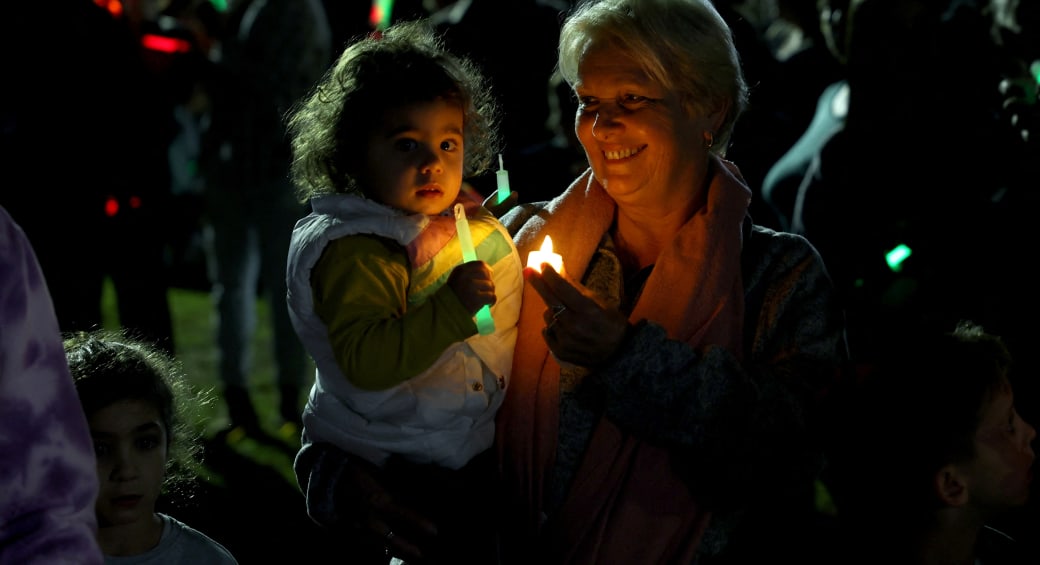

Will the war end without hostage rescue or Hamas takedown? - analysis
The two main objectives of the IDF have been to annihilate Hamas and return all hostages.
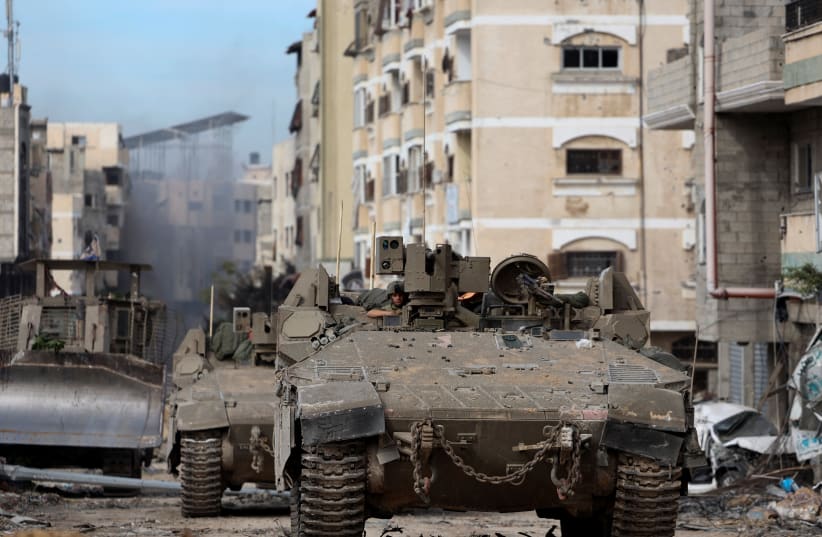
It seems unthinkable.
When Israel started its counteroffensive against Hamas in early October, the two goals were to “annihilate” Hamas and to return “all” of the hostages.
Go to the full article >>Israel's war in Gaza could finish by February, Hamas insurgency to last months
Top defense officials expect a three to nine month insurgency even after the main part of the war concludes.
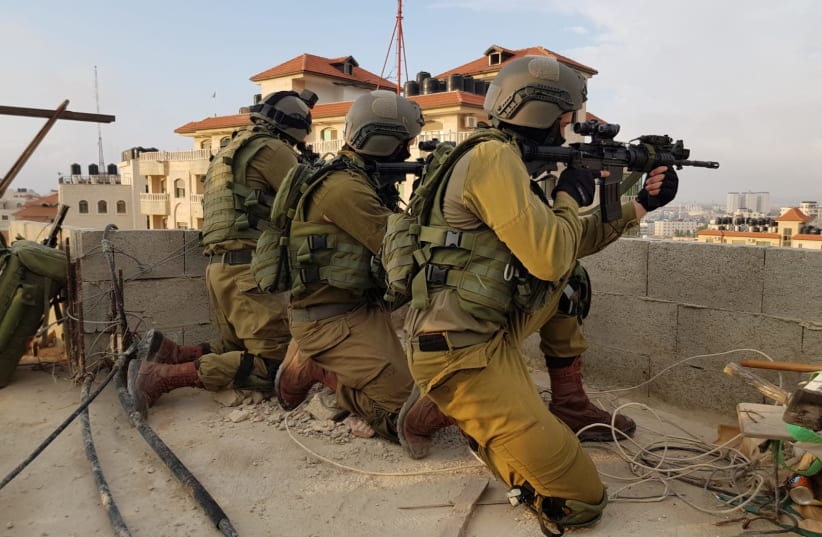
The main portion of Israel’s war in Gaza could be over by mid-to late January.
Top defense officials have previously told The Jerusalem Post and some others that the end of January is a realistic end date for main operations, but some were leaking an even earlier potential end on Saturday night, with Channel 12 being the first to mention this and the IDF refusing to publicly comment.
Despite the optimism, top defense officials expect a three to nine month insurgency even after the main part of the war concludes.
The difference between the main war period and the insurgency is likely to be smaller-scale battles, more of the hit-and-run guerrilla-warfare type, and the beginning of the IDF being able to send a significant number of reservists back home.
If the military can stick to such a deadline, it could relieve some of the current reported pressure from the US and other countries regarding how the war is being fought.
French Navy intercepts two drones fired from Houthi area in Yemen
Earlier on Saturday, the Houthis threatened to attack any ship heading toward Israel.
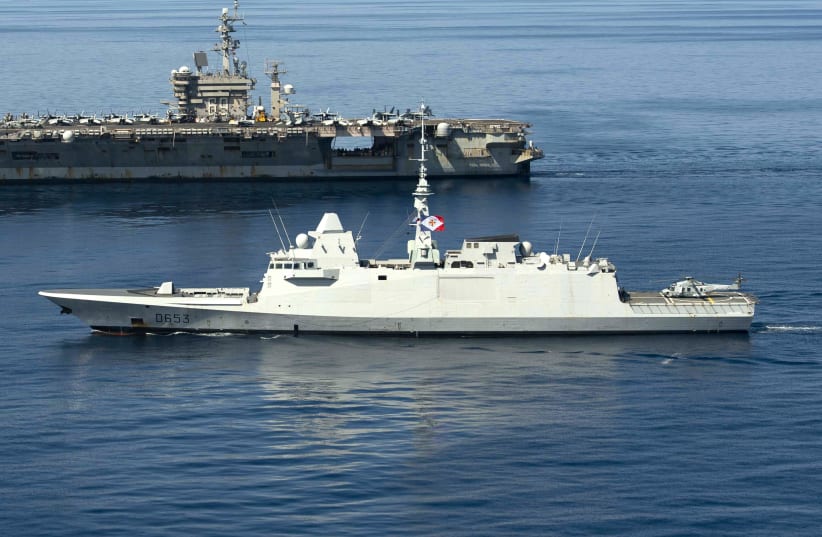
The French Navy's Languedoc frigate intercepted two drones fired from a Houthi-controlled area in Yemen which were heading straight toward it on Saturday, the General Staff of the French Armed Forces said on Saturday night.
The two drones were launched from near Al Hudaydah, a port city controlled by the Iran-backed Houthis, before they were intercepted about 110 km from the coast, according to the Navy. The first drone was launched at the vessel at about 10:30 p.m. Israel time, while the second was launched at 12:30 a.m.
The Languedoc has been deployed in the Indian Ocean Maritime Zone since August and recently accompanied the US Navy's USS Dwight D. Eisenhower aircraft carried through the Strait of Hormuz into the Persian Gulf.
Earlier on Saturday, the spokesman for the Houthi's military forces, Yahya Sare'e, threatened to attack any ship heading toward Israel, no matter which country the vessel belongs to.
"In order to ensure the safety of maritime navigation, we warn all ships and companies against dealing with Israeli ports," said Sare'e.
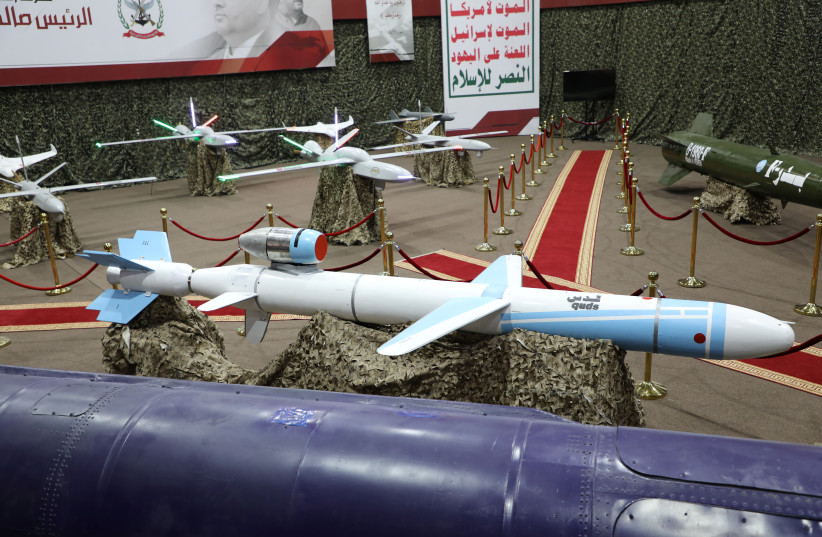
Houthis escalate attacks on maritime traffic in the Red Sea, Gulf of Aden
In recent weeks, the Houthis have escalated their attacks on civilian and military vessels in the Red Sea and Gulf of Aden.
On Wednesday, the Houthis said they launched ballistic missiles toward Eilat, with the IDF saying it intercepted a missile over the Red Sea. Additionally, the US Navy said it shot down a drone that was launched from a Houthi-controlled area of Yemen.
A few days earlier, three commercial vessels came under attack in the southern Red Sea, with the Houthis saying they had conducted drone and missile attacks against two Israeli vessels. The IDF later said that the two ships were not connected to Israel.
US Central Command (CENTCOM) said at the time that four attacks had been conducted against three separate commercial vessels in the southern Red Sea. The three vessels are connected to 14 separate countries.
According to CENTCOM, the Arleigh-Burke Class destroyer USS CARNEY responded to distress calls issued by the ships and provided assistance. While responding to the calls, the Carney shot down a drone launched from Houthi controlled areas. While the drone was headed toward the Carney, its specific target is not clear. No damage was caused to the US vessel and no injuries were reported.
"These attacks represent a direct threat to international commerce and maritime security," said CENTCOM at the time. "They have jeopardized the lives of international crews representing multiple countries around the world. We also have every reason to believe that these attacks, while launched by the Houthis in Yemen, are fully enabled by Iran. The United States will consider all appropriate responses in full coordination with its international allies and partners."
Go to the full article >>Jordan key to resolving current conflict, leading officials agree
Jordan has an excellent relationship with the Palestinian Authority leadership based in Ramallah, and international actors will certainly look to it to advise as to what would and wouldn't work.
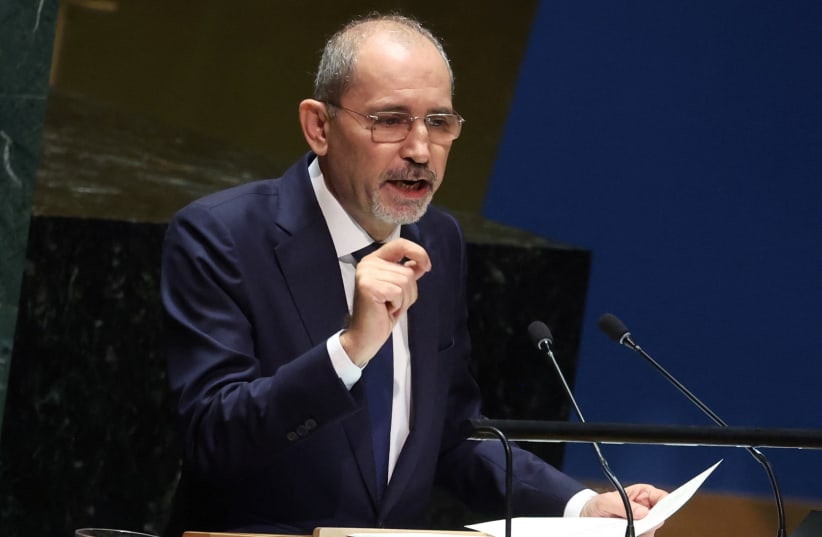
The country of Jordan has played a leading role in reflecting the Arab point of view throughout the current Israel-Hamas war and will most certainly play a role in any talks about the future of the Palestinian territories after the conflict ends.
Jordan has an excellent relationship with the Palestinian Authority leadership based in Ramallah, and international actors will certainly look to it to advise as to what would work and what would not work.
Jordan’s only drawback currently is that it has not abandoned any serious negotiations with the Hamas movement. Jordan deported Hamas officials in 1998 and has not allowed them to set up office or to have any presence in Jordan. For the time being, the Hamas portfolio might continue to be handled by Egypt. At the same time, Jordan will be expected to coordinate its position with Palestinian Authority President Mahmoud Abbas and his team.
The Media Line contacted several leading Jordanians, who agree that Amman can play a role in the current events and talks. Jordan's strong relationship with the United States and the fact that it was the second Arab country to sign a peace treaty with Israel are important assets. The withdrawal of the Jordanian ambassador from Israel following the outbreak of the current war and the denial of the Israeli ambassador's return to Jordan are unlikely to hurt Jordan’s efforts. Analysts point to the strong relations Jordan’s military continues to have with the Israeli military and the fact that Jordan continues to carry out aid drops in Gaza and has established a second military field hospital as testifying to this strong relationship.
Mohammad Momani, a former deputy prime minister of Jordan, told The Media Line that regardless of any ideas circulating about the future of Gaza, Jordan is indispensable for any resolution of the conflict.
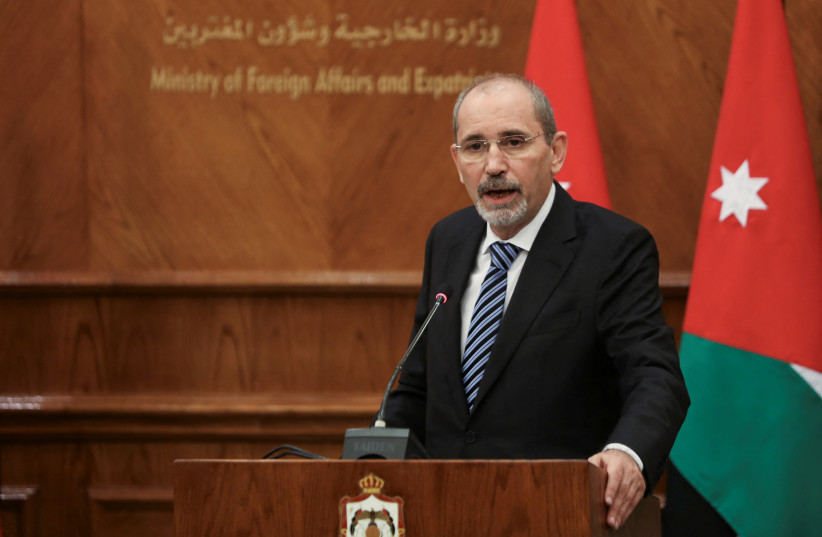 Jordan's Foreign Minister Ayman Safadi speaks during a news conference with German Foreign Minister Annalena Baerbock following a meeting, in Amman, Jordan October 19, 2023 (credit: Alaa Al Sukhni/Reuters)
Jordan's Foreign Minister Ayman Safadi speaks during a news conference with German Foreign Minister Annalena Baerbock following a meeting, in Amman, Jordan October 19, 2023 (credit: Alaa Al Sukhni/Reuters)
 Jordan's Foreign Minister Ayman Safadi speaks during a news conference with German Foreign Minister Annalena Baerbock following a meeting, in Amman, Jordan October 19, 2023 (credit: Alaa Al Sukhni/Reuters)
Jordan's Foreign Minister Ayman Safadi speaks during a news conference with German Foreign Minister Annalena Baerbock following a meeting, in Amman, Jordan October 19, 2023 (credit: Alaa Al Sukhni/Reuters)“It is important that Jordan’s wisdom and Jordan’s vision be on any table of discussion on any issues. I think that the vision of the two-state solution that Jordan keeps fighting for is the logical and most appropriate outcome of this conflict,” he said.
Jamil Nimri, a member of the Jordanian Senate and head of the Social Democratic Party politburo, told The Media Line that Jordan's earlier pronouncement that it was not willing to discuss "the day after" was an initial position held by both Jordan and Egypt while the war was continuing and no one knew what would happen next.
“Jordan will be happy to talk about the cease-fire in parallel to a political solution, and not about any temporary solution like who would govern Gaza after Hamas. This is not a possibility unless people think Israel can succeed in fully occupying Gaza, which would be a very dangerous development," he said.
Nimri conceded that if an international force was deployed as a temporary measure to protect Palestinians in both the West Bank and Gaza until elections and negotiations for a permanent solution could be held, this would be acceptable if it was done in coordination with the Palestinians.
Haytham Ereifej, a Jordanian attorney and political activist who is a founding member of new political party Azem, told The Media Line that Jordan’s central and strategic role in the Arab-Israeli conflict cannot be ignored.
'The Palestinian issue is deeply ingrained in Jordan'
“The Palestinian issue is deeply ingrained in Jordan and the Jordanian effects, especially on decision-makers in Ramallah, is obvious,” Ereifej said. He said that Jordan's strategic location makes it a bridge for any future economic cooperation with Gulf states, and added that while the future may seem dark, Jordanians believe in the Arab proverb, “If people want to live, destiny will respond.”
Ahmad Awad, director of Jordan's Phenix Center for Economics and Infomatics Studies and a former director of Palestinian refugee camps in Jordan, told The Media Line that the Palestinian-Israeli conflict has been going on for 80 years and that even if Israel destroys Gaza and continues committing "war crimes," the conflict will not stop.
“Any solution must be deep and must be based on international law and UN resolutions and the need for Israel to end its occupation and its war crimes," he said. "Any other suggestion will not reach the level of ending the conflict and the end of the war and every month or year we will see a return to the fighting. Look what is happening in the West Bank."
Awad said that Americans need to know that there will not be peace, no stability, and no protection of their interests without a return to the root causes of the conflict and a resolution according to international law.
“Any negotiations or efforts to find solutions without the participation of the key parties to the conflict, who are the Palestinians representing all their representatives, [will fail]," he said. "We cannot say that the Palestinian Authority has no role, nor can we say Hamas has no role. Jordan is a major player, regardless of whether it has a strong or not-so-strong relationship with Hamas. I think that the Americans will pay attention very closely to what Jordan has to say.”
Go to the full article >>Hezbollah, IDF clashes continue over the weekend

The IDF carried out multiple air strikes and artillery barrages against Hezbollah in Lebanon in response to multiple rounds of attacks by the Shi’ite terror group over the weekend.
On Saturday evening the IDF announced that three soldiers were wounded in Hezbollah attacks on the northern border on Friday.
Hezbollah rockets targeted northern border areas also on Saturday, but did not cause additional casualties.
The IDF attacked Hezbollah’s forces in the field, and against its command centers.
However, IDF sources said that there had been no escalation.
Go to the full article >>Israel lauds US, PA accuses it of genocide for vetoing UNSC ceasefire call
Palestinian Authority President Mahmoud Abbas President Abbas called the US veto a “blatant violation of all humanitarian values and principles."
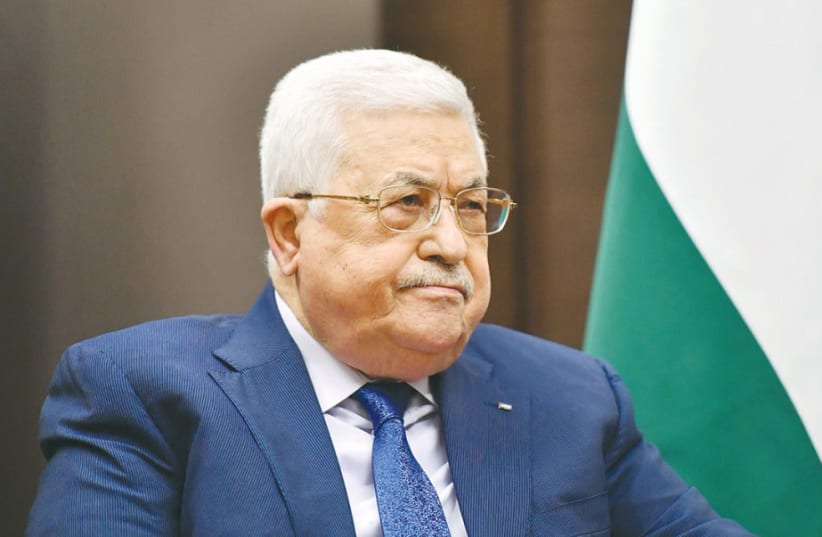
Israel lauded the United States while the Palestinian Authority accused it of genocide for vetoing a United Nations resolution that called for a humanitarian ceasefire in Gaza.
The resolution, which had the support of 13 out of the 15 UN Security Council members, did not condemn Hamas for the October 7 attack. The resolution also did not call for the release of the remaining 138 hostages or demand that the International Committee of the Red Cross visit them.
“I greatly appreciate the correct stance that the US has taken in the UN Security Council,” Prime Minister Benjamin Netanyahu said, explaining that it was impossible to both defeat Hamas and agree to a ceasefire.
“The other countries need to understand that, on the one hand, it is impossible to support the elimination of Hamas while, on the other hand, calling for a halt to the war, which will prevent the elimination of Hamas.”
“Therefore, Israel will continue our just war to eliminate Hamas and achieve the other goals of the war that we have set,” Netanyahu said on Saturday night.
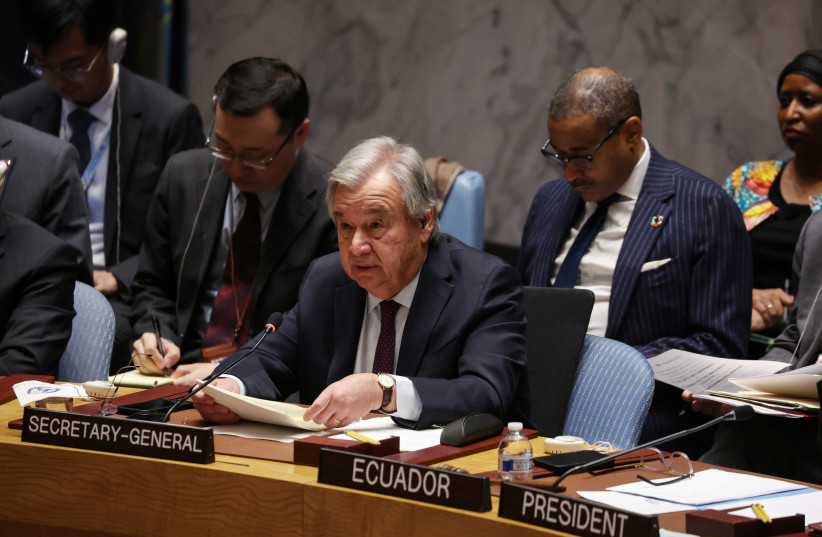
Foreign Minister Eli Cohen said after Friday’s vote in New York that “a ceasefire at this time would prevent the collapse of the Hamas terrorist organization, which is committing war crimes and crimes against humanity, and would enable it to continue ruling the Gaza Strip.”
Cohen said that Israel reacted “with gratitude to our ally, the US, for its support to continue the fight to bring the hostages home and to eliminate the Hamas terrorist organization, which will bring a better future to the region.”
The foreign minister also issued a scathing attack against UN Secretary-General Antonio Guterres, who invoked a rare bureaucratic tool last used in 1989, to prompt a Security Council call for a ceasefire. The text itself was submitted by the United Arab Emirates, which holds one of 10 temporary security council seats.
The US, which has veto power as one of five permanent UNSC members, blocked the move. The United Kingdom, which is also a permanent member, abstained.
Cohen charged that Guterres’ action was akin to supporting Hamas. “Guterres’ appeal to stand on the side of Hamas and request a ceasefire disgraces his position and constitutes a mark of Cain on the UN.
“The invocation of Article 99, after it was not used for the war in Ukraine or for the civil war in Syria, is another example of Guterres’ biased and one-sided stance,” Cohen said.
Palestinian Authority President Mahmoud Abbas called the US veto a “blatant violation of all humanitarian values and principles,” according to a statement posted on the Palestinian news agency WAFA, charging that the US was responsible “for the bloodshed of Palestinian children, women, and elderly in Gaza at the hands of Israeli occupation forces.”
The veto, Abbas said, is part of the Biden administration’s “shameful policy supporting the [Israeli] occupation and Israel’s brutal aggression against the Palestinian people.”
“This US policy makes it complicit in the crimes of genocide, ethnic cleansing, and war crimes committed by the Israeli occupation forces against Palestinians in Gaza, the West Bank, and Jerusalem,” Abbas stated.
“This decision will haunt the United States for years,” he added.
What is the message being sent?
Before Friday’s vote, Deputy UAE UN Ambassador Mohamed Abushahab asked the council, ”What is the message we are sending Palestinians if we cannot unite behind a call to halt the relentless bombardment of Gaza?”
“Indeed, what is the message we are sending civilians across the world who may find themselves in similar situations?”
In a debate Friday morning, before the vote later that afternoon, Israel’s Ambassador to the UN Gilad Erdan asked why the UN, including the Security Council, had failed to hold Hamas responsible for the Gaza war and its October 7 attack against Israel.
There was a seven-day pause to the war in Gaza at the end of November, he said, but then Hamas violated the terms of that agreement, not once, but several times.
“If this council wants to see a ceasefire, start by demanding it from Hamas,” Erdan said.
“Hamas is solely responsible for the humanitarian situation on the ground and they must be held fully accountable by the council,” he said. “When sitting in these meetings it feels as if Hamas does not exist at all.”
Erdan said that Israel was doing its utmost to provide humanitarian aid to Gaza, while he blamed the UN for not having the logistical capacity to handle the situation.
Hamas has shot at Palestinians to keep them away from humanitarian assistance and has stolen aid for their own use, he said.
Deputy US Ambassador to the UN Robert Wood told the council that the draft resolution was a rushed, unbalanced text “that was divorced from reality, that would not move the needle forward on the ground in any concrete way.”
“We do not support this resolution’s call for an unsustainable ceasefire that will only plant the seeds for the next war,” said Wood.
The US had offered substantial amendments to the draft, including a condemnation of the October 7 attack in which Hamas killed 1,200 people in southern Israel and 240 people were taken hostage.
Britain’s UN Ambassador Barbara Woodward said her country abstained because there was no condemnation of Hamas.
“Israel needs to be able to address the threat posed by Hamas and it needs to do so in a manner that abides by international humanitarian law so that such an attack can never be carried out again,” she told the council.
Palestinian UN envoy Riyad Mansour told the council the result of the vote was “disastrous,” adding: “Millions of Palestinian lives hang in the balance. Every single one of them is sacred, worth saving.”
“There is no effective protection of civilians,” Guterres told the council earlier on Friday, as he spoke of a situation in which over 1.8 million of the 2.3 million Palestinians in Gaza have been displaced. Hamas has asserted that over 17,000 Palestinians have been killed in Gaza in war-related violence. Israel has said that some 7,000 of them are terrorists.
Guterres said on Friday, “The people of Gaza are being told to move like human pinballs – ricocheting between ever-smaller slivers of the south, without any of the basics for survival. But nowhere in Gaza is safe.”
A seven-day pause, during which Hamas released 105 hostages and there was an increase in badly needed humanitarian aid to Gaza, ended December 1.
After several failed attempts to take action, the Security Council last month called for pauses in fighting to allow aid access to Gaza, which Guterres on Friday described as a “spiraling humanitarian nightmare.”
“There is a high risk of the total collapse of the humanitarian support system in Gaza, which would have devastating consequences.
“We anticipate that it would result in a complete breakdown of public order and increased pressure for mass displacement into Egypt,” Guterres said.
“I fear the consequences could be devastating for the security of the entire region,” he added.
Go to the full article >>Sinwar 'denying reality', fled north Gaza in humanitarian convoy
Hamas terrorists who surrendered to the IDF complained that the Hamas leadership doesn't care about the public.
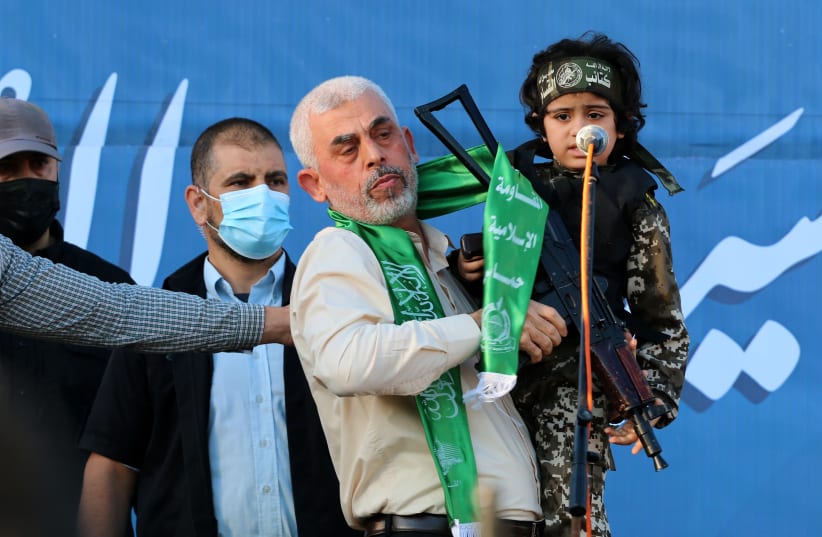
The head of Hamas in Gaza, Yahya Sinwar, fled Gaza City in northern Gaza to Khan Yunis in southern Gaza in a humanitarian convoy soon after the war began, an Israeli source told KAN news on Saturday.
Additionally on Saturday night, IDF Spokesperson Daniel Hagari said that terrorists who surrendered in Shejaia and Jabalya had told Israeli security forces that Hamas leaders, including Sinwar, were "denying reality" despite being updated on the situation on the ground.
"The terrorists complain that the leadership of Hamas is disconnected from the serious situation they're in on the ground. There is also a widespread feeling that the underground Hamas leadership does not care about the Gazan public above ground. This also greatly worries the military operatives of Hamas," added Hagari.
Sinwar, Deif hiding in southern Gaza
A few weeks ago, KAN reported that Sinwar and the commander of Hamas's al-Qassam Brigades, Mohammed Deif, were believed to be hiding in Khan Yunis in southern Gaza.
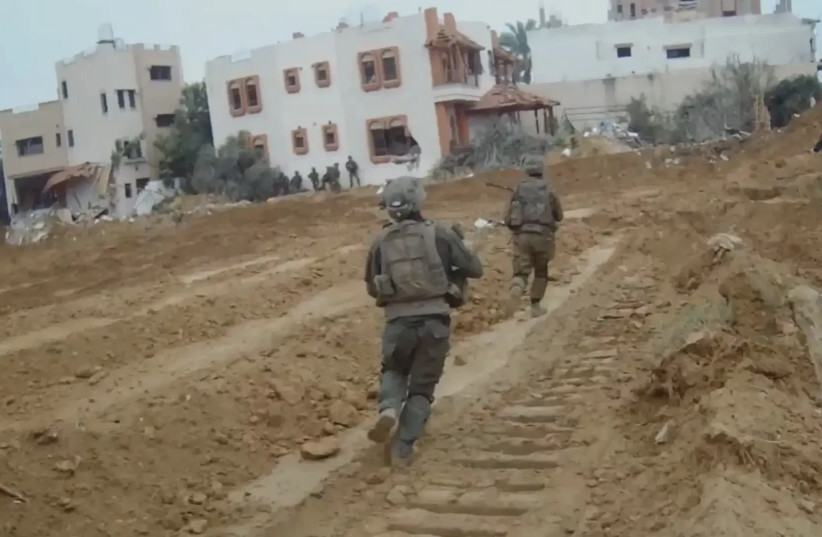
The statement and report came as the IDF continued its operations throughout the Gaza Strip, intensifying strikes in Khan Yunis and other areas of southern Gaza.
Go to the full article >>Minister Eisenkot's nephew killed days after his own son in Gaza
This news was made public on Saturday, following the tragic death of his cousin, Gal Meir Eisenkot, the minister's son, who fell in a northern Gaza Strip battle just a day earlier.
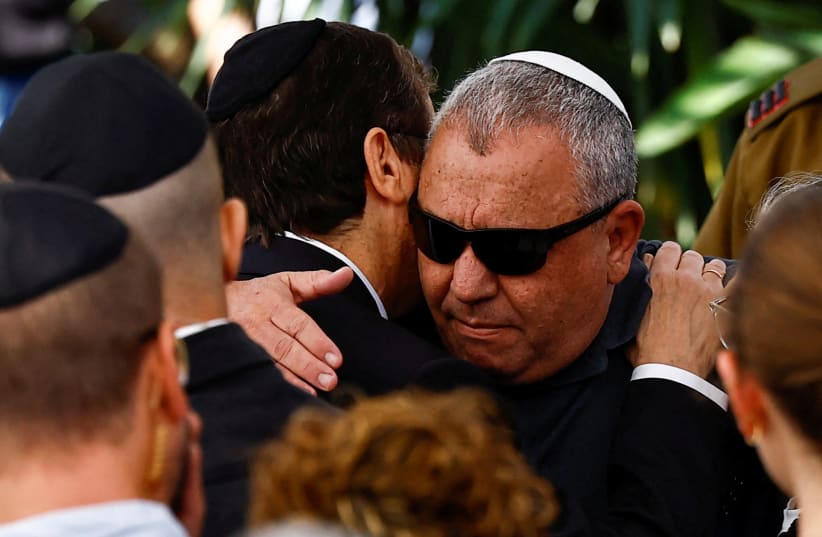
Maor Meir Cohen, nephew to former Chief of Staff and current member of the war cabinet, Gadi Eisenkot (National Unity), was killed in combat in the Gaza Strip. This news was made public on Saturday, following the tragic death of his cousin, Gal Meir Eisenkot, the minister's son, who fell in a northern Gaza Strip battle just a day earlier. Maor, who was serving in regular military duty, is the son of Sharon Eisenkot—Gadi's half-sister, and Michael Mishel Cohen. Named after their grandfather Meir, both Maor and Gal shared more than family ties; they shared a legacy.
Sergeant Major (Res.) Gal Meir Eisenkot, Gadi Eisenkot's son, lost his life on Thursday during a battle in the northern Gaza Strip. He was serving as a reservist in Battalion 699. At the time of the announcement, Gadi Eisenkot was on a Southern Command visit with Minister Benny Gantz and had to be excused from the meeting to receive the heartbreaking news.
Gal's funeral, held on Friday, saw thousands of mourners gathering to bid him farewell at the Herzliya military cemetery.
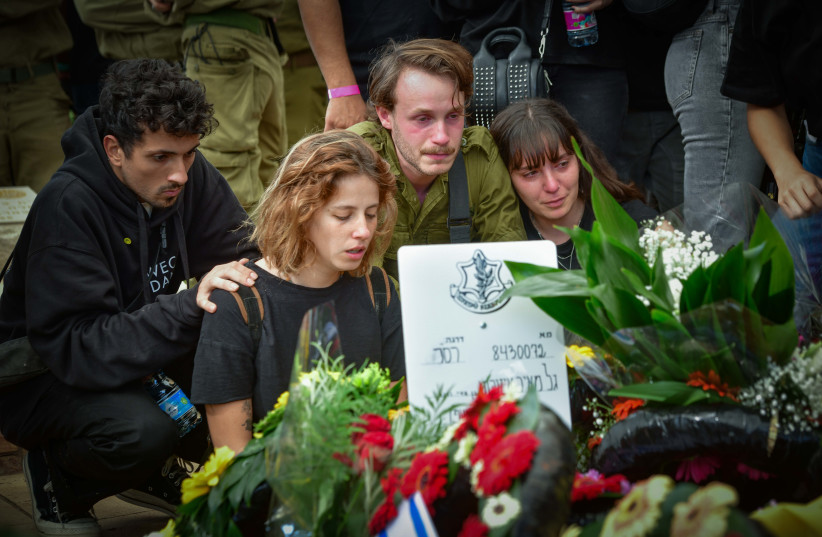
A tearful goodbye
In a tearful eulogy, his father, a Minister in the War Cabinet, said: "Our young son Galush, your mother and I are here with a multitude to honor you one last time." He recalled the fateful day of October 7th, describing how Gal prepared for battle, expressing his belief in the righteousness of the Gaza war and the necessity to defeat Hamas.
"The State of Israel will remain strong, progressive, and just, as you always wished," he continued, vowing to uphold Gal's legacy and ensure that his and other soldiers' sacrifices were not in vain. He pledged, "We will remain a united, joyful family and honor the sacrifices made for the sake of our fellow soldiers and the entire Israeli people."
Go to the full article >>Yemen's Houthis say they will target ships in Red Sea en route to Israel
A Houthi military spokesperson said all ships sailing to Israeli ports are banned from the Red Sea and the Arabian Sea.
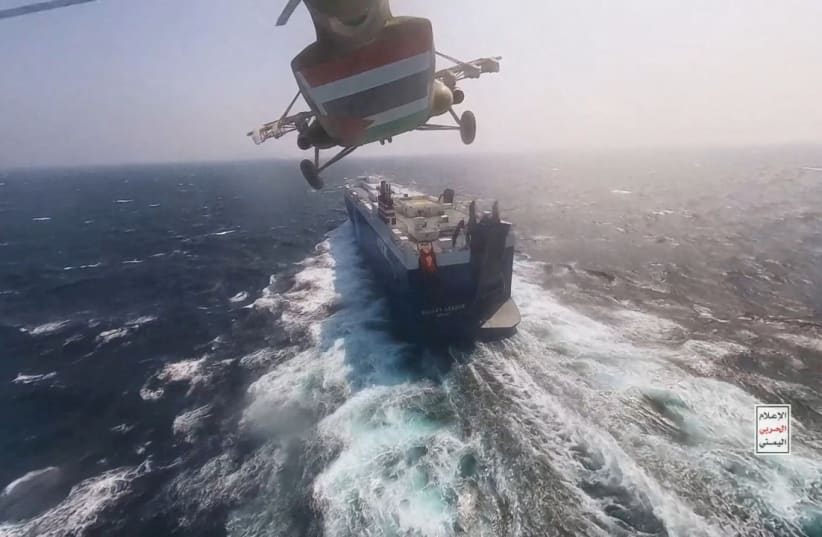
Yemen’s Houthi movement said on Saturday they would target all ships heading to Israel, regardless of their nationality, and warned all international shipping companies against dealing with Israeli ports.
The Iran-aligned group is escalating the risks of a regional conflict amid a brutal war between Israel and Hamas.
The Houthis have attacked and seized several Israeli-linked ships in the Red Sea and its Bab al-Mandab Strait, a sea lane through which much of the world’s oil is shipped, and have fired ballistic missiles and armed drones at the Jewish state.
Houthi officials say their actions are a show of support for the Palestinians.
Israel said attacks on ships were an “Iranian act of terrorism” with consequences for international maritime security.
Threats against Israeli ships and cargo
A Houthi military spokesperson said all ships sailing to Israeli ports are banned from the Red Sea and the Arabian Sea.

“If Gaza does not receive the food and medicine it needs, all ships in the Red Sea bound for Israeli ports, regardless of their nationality, will become a target for our armed forces,” the spokesperson said in a statement, adding that the threat has an immediate effect.
The Houthis are one of several groups in the Iran-aligned “Axis of Resistance” that have been hitting Israeli and American targets since October 7 when Hamas terrorists attacked Israel.
In one of the latest incidents, three commercial vessels came under attack in international waters last week, prompting a US Navy destroyer to intervene.
The Houthis, who rule much of Yemen and its Red Sea coast, also seized a British-owned cargo ship last month that had links to an Israeli company.
The US and Britain have condemned the attacks on shipping, blaming Iran for its role in supporting the Houthis. Tehran says its allies make their decisions independently.
Saudi Arabia has asked America to show restraint in responding to the attacks.
Go to the full article >>Israel-Hamas War: What you need to know
- Hamas launched a massive attack on October 7, with thousands of terrorists infiltrating from the Gaza border and taking some 240 hostages into Gaza
- Over 1,200 Israelis and foreign nationals were murdered, including over 350 in the Re'im music festival and hundreds of Israeli civilians across Gaza border communities